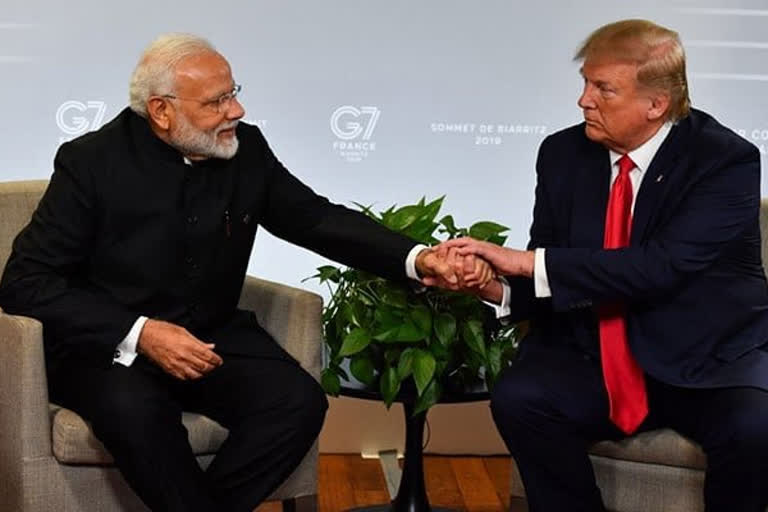Washington: The possibility of US sanctions on India for buying the multi-billion-dollar S-400 missile system from Russia remains on the table, a top American diplomat has said, asserting that New Delhi will have to make a strategic commitment to technologies and platforms.
In October 2018, India signed a USD 5 billion deal with Russia to buy five units of the S-400 air defence missile systems, notwithstanding warning from America that going ahead with the contract may invite US sanctions under the Countering America's Adversaries Through Sanctions Act (CAATSA).
Last year, India made the first tranche of payment of around USD 800 million to Russia for the missile systems. The S-400 is known as Russia's most advanced long-range surface-to-air missile defence system.
"CAATSA very much remains a policy priority, certainly for Congress, where you've seen the very strong demand for implementation and concern over the ability of Russia to gain monies from these military sales that will be used to further undermine the sovereignty of neighbouring countries," Alice Wells, the outgoing Principal Deputy Assistant Secretary of State for South and Central Asian Affairs, told a Washington DC-based think tank on Wednesday.
The US had imposed sanctions on Russia under the stringent CAATSA. The law also provides for punitive action against countries purchasing defence hardware from Russia.
"CAATSA has not moved off the table. Instead of approaching it from a Russian prism though, I think the more important conversation to have is at this level of sophistication and as India is moving to adopt the highest level of technological systems, it becomes a question of which system do they want to operate within," Wells responded to a question posed by former US Ambassador to India Richard Verma.
Read more:Trump threatens funding after Michigan absentee ballot move
"How do they want their systems to communicate with one another? It's not a mix and match arrangement. At a certain point, India will have to make sort of a strategic commitment to technologies and platforms and we think we have the best technologies and platforms," Wells said while participating in an Atlantic Council-organised virtual discussion.
At the same time, the top US diplomat for South Asia who will retire on May 22 after a 31-year-long career, referred to the growing defence relationship between the two countries.
"We have also made strides in our defence trade, with the bilateral tally now crossing the 20 billion mark after the president's visit. I think this administration deserves to take credit for making a concerted policy change to offer India our most advanced defence technologies such as armed Unmanned Aerial Vehicle," she said.
"It's quite remarkable to think that the same missile defence system protecting Washington DC will soon be protecting new Delhi," Wells said.
India's growing capabilities as a first responder have also been on display in the Indian ocean where it has been delivering COVID relief, often using US-origin platforms to dozens of countries.
"Looking ahead, I'm confident that defence trade and interoperability will continue to grow even though COVID-19 related budgetary challenges may slow the pace," she noted.
